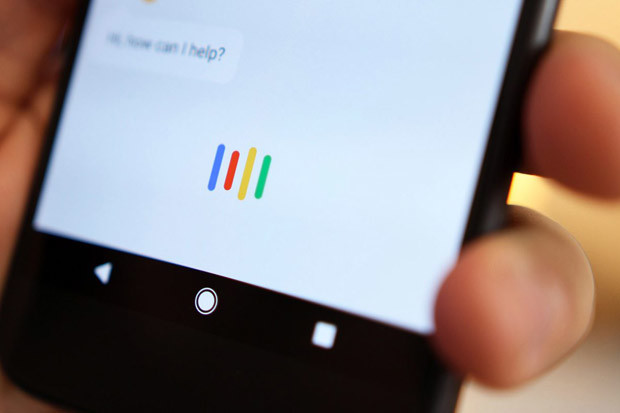Mobile devices and home assistants are opening up new channels of engagement for news organisations, enabling them to reach audiences in new, interactive ways.
According to recent Canalys research, the global smart speaker market is poised to grow to 56.3 million shipments in 2018. With technology such as the Amazon Echo and Google Home arriving in people’s homes to help play music, make calls, and check the weather, how can reporters best use this technology to tell stories?
Alexander Bregman, strategic partner development manager, product partnerships EMEA at Google, told delegates of the Digital Innovators' Summit in Berlin today (20 March) what Google is currently offering reporters.
"The Google Assistant is often thought of as on the Google Home, but it is actually available on 400 million devices including your smartphone, computer, smartwatch and headset," he said.
"A user is likely to catch up on the news headlines in the morning using Google Home, then get smartphone or watch notifications on a particular story as it evolves throughout the day, and maybe in the evening go deeper into that story on a television."
Audio
Publishers can produce audio news briefs, simply through RSS feeds and MP3 files. When audiences ask for the morning news, for example, they get stories from their preferred news outlets, which are pre-set into their assistant.
"We want to take it further, and use audio news as an entry point to connect to the same user later in the day," he said.
"If a user asks to be kept up to date on a news topic, we can give them more news as the story evolves on different devices."
First question after Google Product Partnerships EMEA Manager Alexander Bregman's deep dive on #storytelling on #voicefirst devices: "How about the #monetization?"
— Rolli Vogel (@BrainEspresso) March 20, 2018
One of your options: For an ad within your feeds, #Google doesn't bill you anything.#DISummit pic.twitter.com/YCQMEppTgE
Bregman explained that there are currently over 300 different audio news sources on the Google Assistant, with publishers fighting for attention, updating their files if not hourly, at least twice a day.
Text
The devices that are most suitable for text are smartphones, Bregman explained. When a user asks Google for the latest headlines on a certain topic, they are presented with an AMP carousel.
"We use it as an opportunity to make the experience a bit more conversational and engaging than the general Google Search experience," he said.
"For example, we are working on instead of just showing you Accelerated Mobile Pages (AMP) articles, we can show you AMP stories or suggest relevant topics or related queries."
Video
Google announced this year that Google Assistant is also going to be available on a range of visual smart speakers – much like a standard audio speaker, but with an eight-inch display.
"They will be built with a 'voice first, touch second' design – available later this year," he said.
"They won't be like tablets – users control them with their voice – and will allow publishers to experiment and play with what is possible when you can offer audiences an instant video.
"It is still early days for the Assistant, and everything that we are working on is constantly evolving."
Google Assistant is a conversational technology, demonstrated by Bregman's example of asking it to directly connect him with a certain brand: "Hey Google," he said, "Connect me to the Economist Espresso." The Economist Espresso app then took over, and began asking Bregman what he wanted to hear.
"The publisher is able to do what they specifically want to do with the user, and determine what content they want to offer as an audio or text experience, such as a quiz."
Free daily newsletter
If you like our news and feature articles, you can sign up to receive our free daily (Mon-Fri) email newsletter (mobile friendly).












